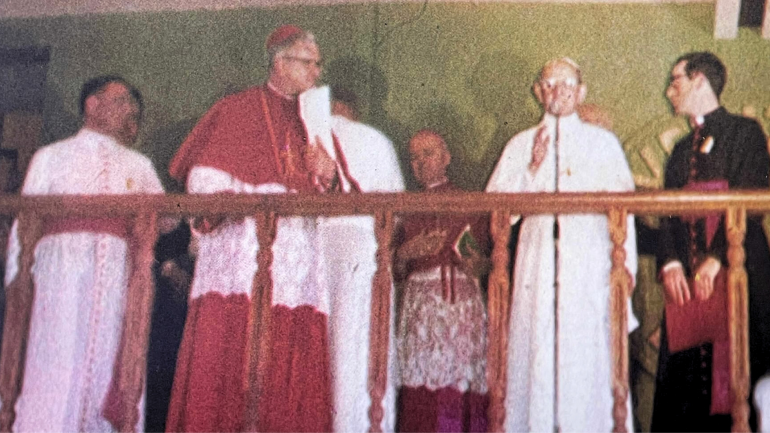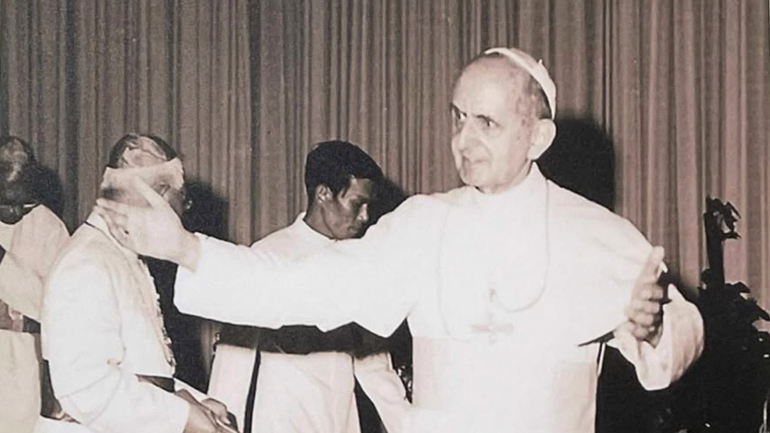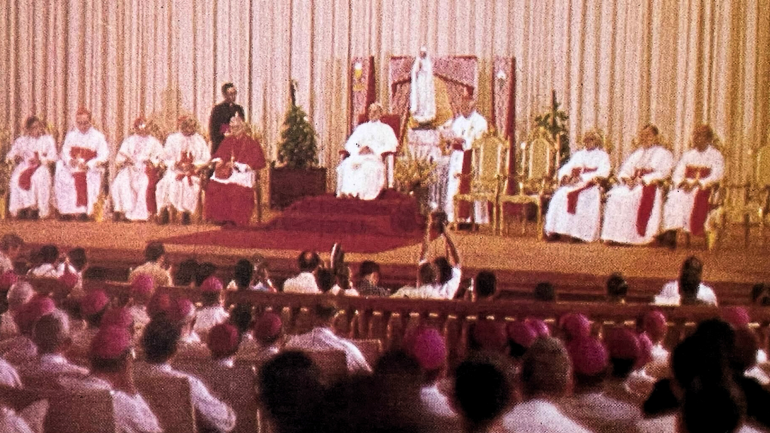St. Paul VI and the Truth Mission of Radio Veritas Asia

When Pope Paul VI stepped off the plane in Manila on November 27, 1970, the Philippines was abuzz with anticipation. It was the first papal visit not only to the country but to the entire Far East. For three days, the nation welcomed the Successor of Peter with joy and fervor. Yet amid the grand liturgies and official ceremonies, one moment stood out for its quiet symbolism: the Pope’s visit to a small but daring Catholic radio station that dreamed of being the “voice of the Church in Asia.”
That station was Radio Veritas Asia.
The Birth of a Dream
The idea of Radio Veritas Asia began years earlier. In 1958, Asian bishops meeting in Manila envisioned a medium that could cross borders, transcend censorship, and reach millions with the Gospel. To realize this dream, the Philippine Radio Educational and Information Center was set up in 1961. After years of planning, its studios in Fairview, Quezon City, were inaugurated in April 1969.
The Pope at Radio Veritas Asia
Barely a year later, providence would bring the Pope himself to its doors. On November 29, 1970, the last day of his visit to the Philippines, Paul VI made his way to the station. The timing was remarkable: the night before, he had survived an assassination attempt at Manila International Airport, when a Bolivian man disguised as a priest lunged at him with a dagger. Despite the harrowing ordeal, the Pope refused to cancel his schedule. His decision to proceed with the Radio Veritas Asia visit showed his conviction that communication was at the very heart of the Church’s mission.
Inside the modest studios, Paul VI blessed the microphones and consoles, praying that their broadcasts would carry light across Asia, a continent still scarred by war, division, and poverty. He offered the station a golden chalice, a symbolic reminder that the Eucharist is the center of the Church’s proclamation. Then, speaking into the microphone, he addressed not only the Philippines but the entire continent: “To you, the countless millions of men and women, our brothers and sisters who live in Asia, this crossroads of cultures ancient and modern… the blessing of God, abiding peace and fraternity.”
His words, carried across the airwaves, were both pastoral and prophetic. “We are happy to address these words to you on the occasion of the inauguration of Radio Veritas Asia,” he said, expressing his hope that the station would spread nothing less than “the voice of truth.”
“From this station may there always be diffused truth, the voice of truth, the truth about man and his destiny, the truth about the world, the truth above all about God.”
Pope Paul VI affirmed the Asian Bishops’ vision of a continental radio station, which was conceived from the beginning as Radio Veritas Asia, a mission serving the entire continent of Asia.
The Growth of a Mission
In the decades that followed, Radio Veritas Asia grew into a powerful communication apostolate. It began broadcasting in multiple languages, Chinese, Vietnamese, Urdu, Tamil, and many more, reaching corners of Asia where missionaries could not freely go. For countless listeners, the station became a companion of faith, carrying catechesis, Bible readings, and reflections into their homes.
Voice for Justice and Democracy
But Radio Veritas Asia's mission extended beyond evangelization. It also became a voice for truth and justice in moments of national crisis.
On August 21, 1983, when Senator Benigno “Ninoy” Aquino Jr. was assassinated at the Manila airport, Radio Veritas Asia reported the news boldly while other outlets hesitated. It was also the only station to broadcast Aquino’s funeral, which drew more than two million Filipinos into the streets, a massive outpouring that shook the Marcos dictatorship.
Three years later, in February 1986, the station would again play a decisive role. As Filipinos gathered along Epifanio de los Santos Avenue (EDSA) to protect reformist soldiers and call for democracy, Radio Veritas Asia became the revolution’s heartbeat. It aired Cardinal Jaime Sin’s historic appeal for people to support the soldiers, urging peaceful resistance. When Marcos’ forces tried to silence the station by attacking its transmitter in Malolos, Bulacan, injuring staff in the process, the voice of Veritas did not falter. Makeshift transmitters kept the broadcasts alive, fueling what would become known worldwide as the People Power Revolution.
That same year, the station’s courage was recognized with the Ramon Magsaysay Award for Journalism, Literature, and Creative Communication Arts, honoring its role in helping restore democracy through the power of truth.
Paul VI’s Legacy in Communication
Looking back, St. Paul VI’s blessing in 1970 seems providential. His encouragement gave strength to the pioneers of Radio Veritas Asia, who faced daunting odds. His words became a mandate: remain faithful to truth, stand with the poor, and foster unity amid diversity.
Paul VI would later publish Evangelii Nuntiandi in 1975, underscoring that evangelization and communication are inseparable. Yet in Manila, five years earlier, he had already demonstrated this conviction in practice. By speaking into the Radio Veritas Asia microphone, he showed that new media could be pulpits as vital as any cathedral.
A Mission that Endures
Fifty-five years later, Radio Veritas Asia continues its mission, reaching audiences across the region through radio, digital platforms, and streaming services. Plans are underway to expand into television, ensuring that its voice will adapt to new landscapes while remaining faithful to its mission of truth, faith, and service.
The image of St. Paul VI at Radio Veritas Asia remains striking: a pilgrim pope, scarred from an attempt on his life yet undeterred, standing before a microphone and entrusting it with the Word of God. In that simple act, he gave Asia not just a radio station but a promise that the Church would walk with its people, speak to their struggles, and amplify their hope.










